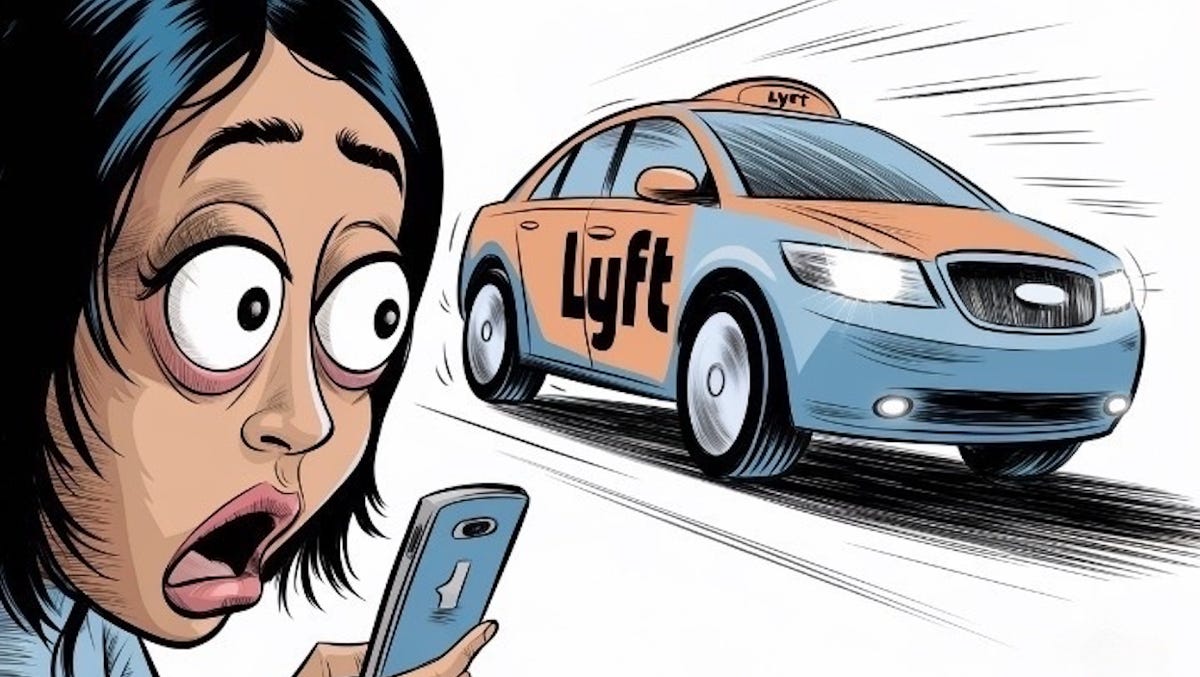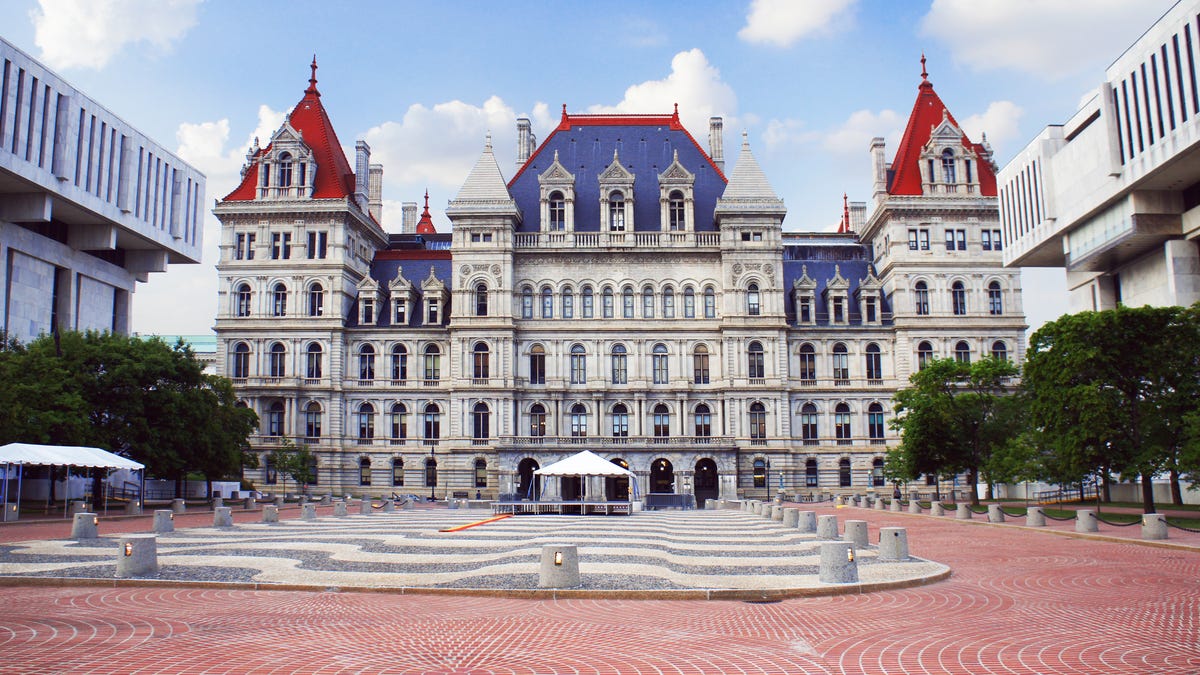
Top three travel trends for summer 2025
Airbnb shares data behind the top summer destinations and motivators for 2025.
Sharmistha Das says she didn’t trash her Lyft.
But her driver claims she dragged her bicycle helmet along the side of his door, leaving several long scuff marks.
Lyft charged her credit card an $80 cleaning fee – and she’s not alone. As the summer travel season gets underway, more travel companies are billing their customers for leaving a mess behind.
The question is, are travelers becoming more careless – or are businesses seeing a profit motive? And what, if anything, can you do about it?
Das’ auto problem: ‘Repair is needed’
Shortly after Das, a research scientist from Boston, returned from a trip to the grocery store, she received an email from Lyft.
“Your driver, Dmitry, notified us that repair is needed after your ride,” it said. “An $80 charge has been applied to your default card.”
But the photos Lyft sent were problematic. Dmitry claimed she scraped the car with her bicycle helmet. But the helmet had no edges that could have inflicted the scratches.
“When I asked for proof of the time or location of the images taken, none were provided to me,” she says.
And the photos didn’t match the location she had visited.
Das’ experience is common, and not just with Lyft. Travel businesses hit their customers with cleaning fees, often with the flimsiest of evidence. And some companies simply charge their customers’ credit cards without their permission.
No one is keeping track of the number of cleaning fees in the travel industry or even measuring the cleanliness – or lack thereof. But based on extensive interviews with travelers and the cases I receive at my nonprofit consumer advocacy organization, it’s fair to say there has been an upswing in both.
“This issue appears to be escalating,” says Carla Bevins, who teaches business management communication at Carnegie Mellon University’s Tepper School of Business.
Why? Bevins suspects that part of the reason is that there’s no consistency in cleaning standards.
“For instance, a guest might stay at one vacation rental and feel like a quick sweep is enough, only to find themselves hit with a hefty cleaning fee,” she says. “Or, a rental car might seem fine to a guest but falls short of the company’s cleanliness standards.”
But there’s more to this.
Travelers are less respectful now – and messier
Fact is, the COVID-19 pandemic changed travelers. (It changed all of us, actually, but that’s a topic for another day.) And people have noticed the mess.
I saw some of the most careless tourists in the world when I lived in Rio de Janeiro last year. Many visitors showed no respect for the beautiful beaches, discarding trash and often using the medians to relieve themselves after a night of drinking.
But the worst I’ve ever seen was in Dublin. I lived in Temple Bar, a historic part of the Irish capital known for its pubs. Every morning, the cleaning crews had to make several passes through the narrow cobblestone streets to remove empty beer bottles, trash and human waste.
It cuts across all classes.
Sharon Sybrandt, a fraud investigator from Cedar Creek, Texas, recalls a recent flight from Austin to London. As she was disembarking, she says, the economy class section was relatively clean. Then she got to business class.
“There was trash all over the floor,” she says. “I couldn’t believe it.”
What’s going on? Behavioral experts say people want to live a little and there’s a sense of entitlement, as if they paid for an experience and someone else should clean up after them. As you might guess, that’s not going over well with hotels, car rental companies and vacation rental owners.
“I think they’re fed up with travelers leaving ridiculous messes,” says Jo Hayes, an etiquette expert. So, instead of quietly cleaning up after them, they’re charging them.
Are cleaning fees are a source of revenue?
Hang on. What about travelers like Das, who are getting hit with fees for allegedly scuffing up the side of their rideshare? Well, there’s another perspective on this: that some travel companies are charging more fees to increase their revenue.
Travel expert Dean Rotchin says some companies are charging fees that far exceed actual cleaning costs. It’s particularly true for vacation rental owners, who charge $200 to $300 to clean a small property – more than double the going rate. And he has noticed that car rental companies have embraced a far stricter view of what constitutes a messy return. That way, they can charge cleaning fees as high as $400.
“They’ve really embraced this trend,” says Rotchin, CEO of a private jet company.
There’s no question that cleaning fees can be a significant source of revenue for the travel industry.
Unscrupulous vacation rental hosts can enrich themselves by padding their fees – and as a bonus, they can often separate these fees from the base rate, which makes the rental look cheaper.
Drivers for ride-sharing companies also know that a vague damage fee can bring in an extra $80 or more. Perhaps the worst are hotels, which simply charge guests for cleaning their rooms after they check out without providing any evidence the customers were responsible for the mess. That’s a scam.
Don’t let it happen to you this summer
How do you avoid cleaning fees? Easy, says Joe Cronin, CEO of International Citizens Insurance. “Just clean up after yourself.”
Treat the space as if it’s your own. Also, read the fine print and reviews – that way, you know what your host or hotel expects.
And what about Das? Well, I asked Lyft about her case, and a few days later she received an email from someone on Lyft’s executive escalations team. Without addressing her questions about the missing time stamps and problematic locations, Lyft claimed the evidence against her supported the charge, even after a second review.
“We understand you have adamantly denied this damage occurred,” the representative added. “As an act of good faith, I have refunded the damage fee of $80 back to your payment method for this case.”
Christopher Elliott is an author, consumer advocate, and journalist. He founded Elliott Advocacy, a nonprofit organization that helps solve consumer problems. He publishes Elliott Confidential, a travel newsletter, and the Elliott Report, a news site about customer service. If you need help with a consumer problem, you can reach him here or email him at chris@elliott.org.










